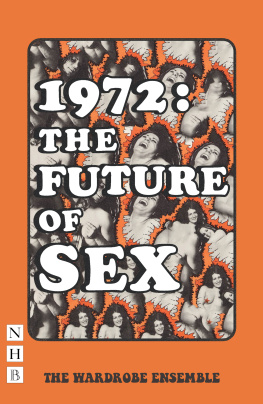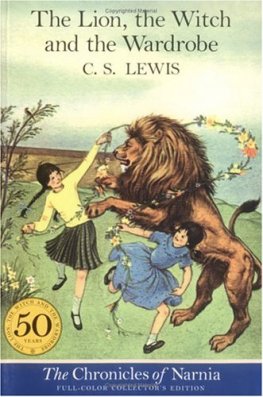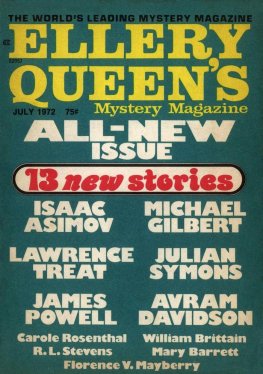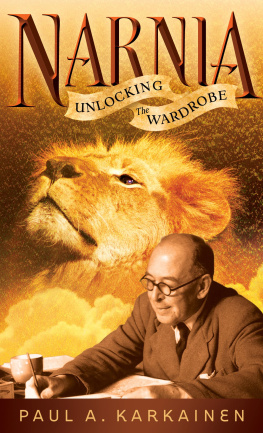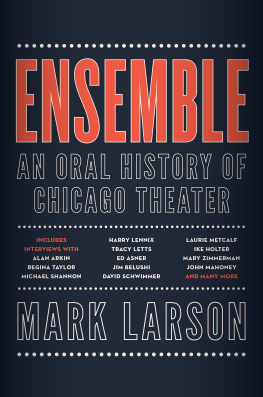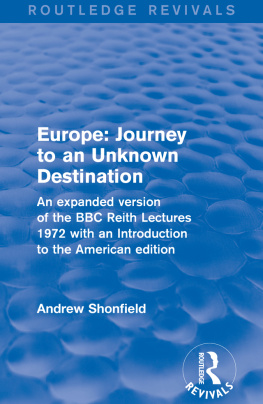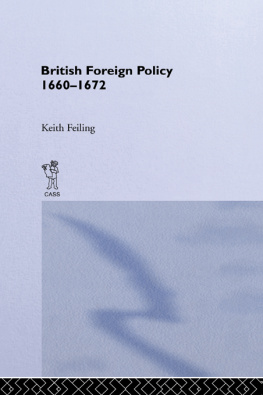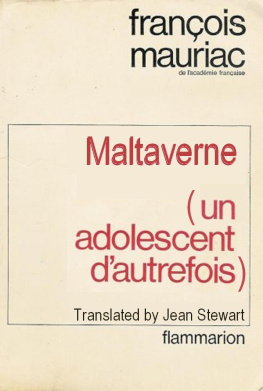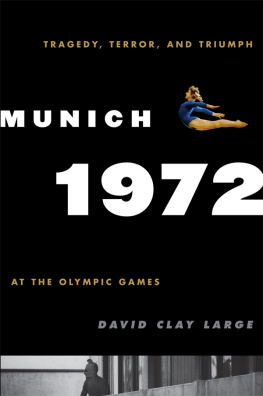The Wardrobe Ensemble
1972:
THE FUTURE OF SEX

NICK HERN BOOKS
London
www.nickhernbooks.co.uk
Foreword
In 1995 when I was fourteen, I developed my first proper all-consuming musical obsession and, like so many before and after me, it was with The Beatles. My best friend Eleanor had been given a CD of the 1966 album, Revolver. We lay on her bed with all the lights out as the twanging opening chords of Taxman started and at that moment something in my life irrevocably altered. I did not come from a family where music was played all that often, and certainly not music that sounded like this. Those thirty-five minutes and one second of splendour that we played on repeat for hours represented a complete and utter liberation. From that day, I spent the rest of my teenage years learning everything I could about the sixties and seventies. I imagined how it must have been to stroll down Carnaby Street in a sheepskin coat. I grew my hair long and wore flowered hairbands and flares, revelled in footage of sit-ins and protests and dismissed any talk of contemporary society with the knowing sneer of someone who understands there was once a better life. I fell deeply in love with the young Paul McCartney and practised kissing his picture on a life-size poster on my bedroom wall. I lay beneath it and lost hours fantasising about what it must have been like to be a student during the Wings university tour of 1972 where I may have actually had a chance of running into him in the student bar
To culturally interested, educated millennials, sitting in the comfort of a more equal, economically stable and technologically advanced life, the allure of the sixties and seventies has never really faded. There is still great romanticism in the idea of Bowie stepping out on stage as Ziggy Stardust or the photos of the women shouting with rebellious pride as they protest at the Miss World pageant. We have a tendency to believe, as I did, in my Beatles-fuelled teenage haze, that it was unequivocally a more exciting, more dynamic time. That anyone who came of age in the sixties and early seventies must have surely been having a wild, uninhibited ride of free love, artistic experimentation and profoundly important political revolt.
But of course, that could never have really been the whole picture. England, for the most part, was still a country that prioritised tradition, old-fashioned family values, and a fairly broad sweep of political conservatism. 1972, the year of focus for The Wardrobe Ensemble, was actually a very special one. But it wasnt necessarily special because it was a particularly good year, or because of some of the more iconic moments of cultural history that it spawned. It was special because it marks a historical border between the 1960s a decade that was indeed marked by idealism, experimentation and a certain degree of affluence and the 1970s a decade of conservative politics, unemployment, detrimental class clashes and escalating inflation. Looking back now, 1972, bridging this momentous before and after, appears on the history pages as a cacophony of confusion, contrasts and contradictions a year of incredible social highs and lows. It is a period of twelve months that starts with Bloody Sunday and ends with the formation of the first Green political party. A period that produces the era-defining feminist magazine Spare Rib, but also Playboys highest-selling issue ever recorded. It was the year where, on stage, David Bowies alter ego may have liberated and empowered isolated teenagers, but in the music studios and backstage of Top of the Pops, musicians and presenters were using their power and privilege to abuse that same generation. Twenty-three years later, my fourteen-year-old self may have looked to this time with longing, but in reality a teenage girl from a working/middle-class conservative family in Kent would have been twenty times less likely to attend university than her 1990s counterpart, let alone go on tour with Paul and Linda.
The Wardrobe Ensemble are only too aware of these nuances, and cleverly navigate how certain monumental moments of iconography and cultural resonance from 1972 offer compassionate insight into the very real struggles of everyday people dealing with their sexual identities and relationships. In the play, a family sits watching Ziggy Stardust emerge in all his glory on their one shared television set. The daughter rises out of her seat in triumph whilst her parents shrink and convulse in disgust as they promptly change the channel there will be no watching it later on YouTube for her In the hallowed halls of academia, a brilliant modern young woman gets turned on by her apparently feminist lecturer only to discover he is by no means interested in walking the walk he so passionately (for hours) likes to talk. And Anton who likes to dress in his mums clothes struggles with having to confine his real identity to his bedroom.
Of course, the real brilliance of this show is that whilst we nod, smile and enjoy the historical references of music, time and place, we are really watching something that is just as much about ourselves as it is about the generations above us. A love letter to the sexual confusion and exploration of us and our parents, so to speak. It nudges us to consider that whether a Joni Mitchell or a Britney Spears concert, longing, fear, love and loss clash and collide throughout decades and across millennia. It is a show that you can watch with your friends, your parents and your siblings. A show that reminds you of the pain, pleasure and sometimes joy of sexual discovery, but also urges you to understand that no matter what era you come of age in, there will be social challenges, norms and conventions to confront.
In a year where our country is so uncertain of its future, where we are again in a twelve-year period that marks enormous change, 1972: The Future of Sex has an even more profound impact as it makes us reflect on how nostalgia, and looking wistfully for an idea of when things were better, is misguided. Instead, the show encourages us to learn from the past; appreciate what it gave us, but use it to help us better understand and develop our present. Through great laughter and striking poignancy, the play lets us know that whilst generations may feel so greatly divided, we have all been, at one point or another, that teenager in their bedroom looking and wondering at their reflection in the mirror. And ultimately, when all is said and done, no matter what your musical or sexual preference, isnt that a wonderful and necessary reminder?
Rebecca Pollock, still a dedicated Paul McCartney fan 2019
Rebecca Pollock is a screenwriter, lecturer and founding member of Shady Dolls Theatre Company
A Note from Co-director Tom Brennan
Mum, when did you first have sex?
We began making this show under the working title The History of Fucking in the autumn of 2014 at Shoreditch Town Hall. We were feeling pretty uncomfortable about the state of sexual politics at the time and wanted to know how we had got to where we were. In those first two weeks, we made mountains of material. We researched, read, interviewed our parents (see above question), improvised, danced, played and talked. We talked about history, change, gender, identity, choice, equality, power, porn, love, sex, sex, sex. We talked about the inequalities present in our rehearsal room. We felt vulnerable and dangerous.
We felt confused. When we first performed this show over the summer of 2015, I was surprised by a particular response. Often audience members who grew up in the 1970s talked to us after the show about how recognisable and real the world of the play felt to them. They would ask us:

